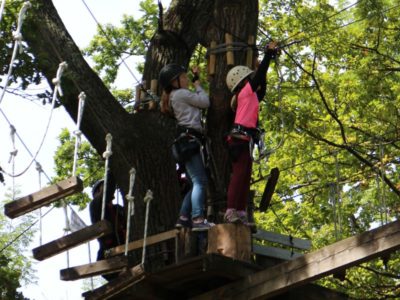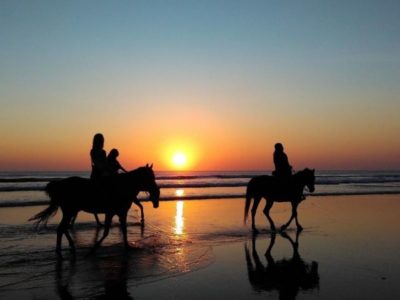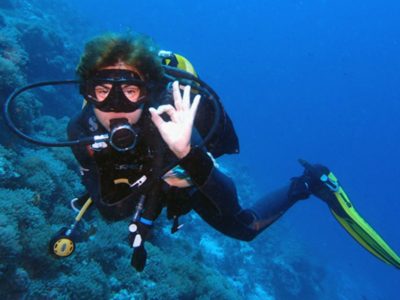(+39) 0964 86.02.01
Territory
Calabria and its natural beauty
Points of interest
Rocella Ionica
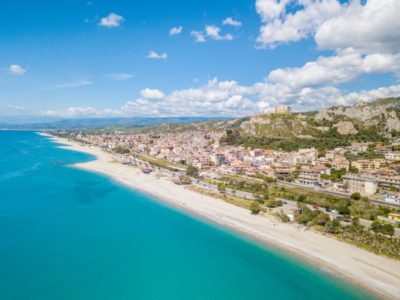

Roccella Ionica is located on the coastal area bathed by the Ionian Sea, known to most people as the Riviera dei Gelsomini that twists and turns for 90 kilometres with low and sandy beaches. The quality of the beaches and the sea have often earned it the European Blue Flag. The Carafa Castle, located on a rocky promontory overlooking the village of Roccella Jonica, has a small paved courtyard giving access through the main staircase on the upper floors.
Galea Tower
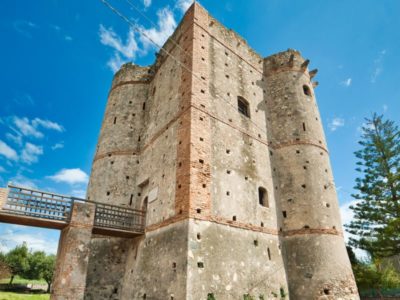

The “Galea Tower” is located near the town of Marina di Gioiosa Ionica, isolated in the countryside of the Ionian town about a mile away from the Torre del Cavallaro, with a beautiful panoramic view. This interesting architecture stands between 1490 and 1493 and was recreated in the mid-sixteenth century to defend the internal territories from Turkish raids.
Gerace
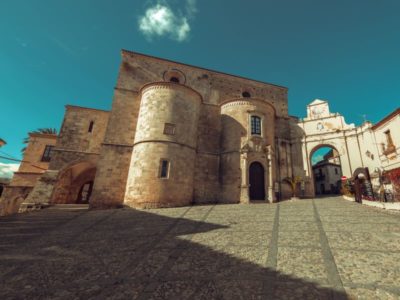

Gerace, awarded with the prestigious Orange Flag of the Touring Club, the medieval town, situated on a sandstone cliff within the Aspromonte National Park, almost five hundred meters high. Its Borgo Maggiore with the dwellings dug out of the tuff, the seventeen churches that surround the Byzantine – Romanesque – Norman cathedral probably built between the end of the 11th and the beginning of the 12th century and the Castle of which today remains a large tower and few walls. Gerace is a destination for tourists and visitors from all over the world, especially during the “Borgo Incantato” (Enchanted Village) event, the international festival of street artists that takes place every year at the end of July.
Mammola
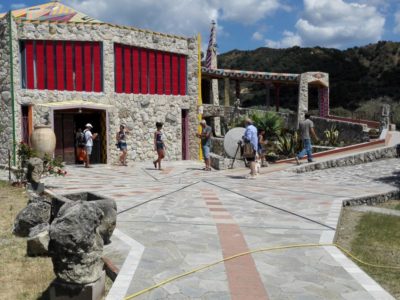

Mammola, wonderful historic town: without any doubt, one of the most beautiful and most visited in Calabria. A town with a picturesque landscape that is undoubtedly a suggestive gateway to the splendid Aspromonte National Park. Place to visit: the Abbey of San Biagio (10th century); the Sanctuary of St. Nicodemus; the Monastery of Kellerana (10th century); the Santa Barbara Museum, where you can admire the masterpieces of the local artist Nick Spatari and other international artists.
Stilo
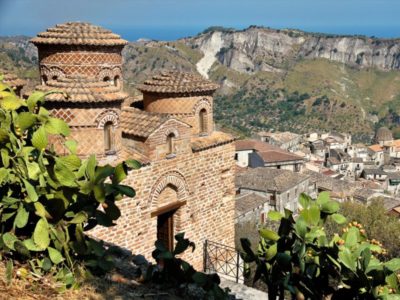

Stilo, characteristic village dominated by the Cattolica, the church in the shape of a cube overcame by four domes placed on the corners, buried in the mountains of the hinterland. Elected as one of the most beautiful villages in Italy: the medieval gates, illustrious buildings, the library. Medieval life in Stilo relives in the Palio di Ribusa, one of the most popular events of the Calabrian summer. Fire games, representations in medieval costumes, pomps and traditions lead the viewer to the ancient splendours of shows and images breathed in the fortifications of the time.
Locri
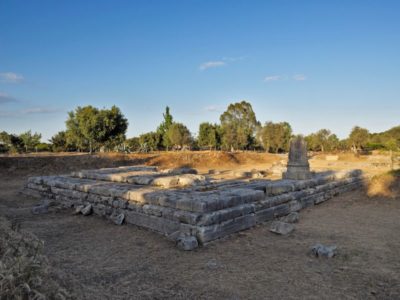

Locri: the National Archaeological Museum and Locri Epizefiri Park (in Contrada Musarà district) is located within the archaeological area and stands near a votive deposit dedicated to Zeus. The museum route runs over two floors: on the ground floor, there are finds from the archaeological excavations of the ancient Magna-Greek polis, while on the first floor there are finds dating back to Greek colonization and datable to the Iron Age.
Tropea and Capo Vaticano
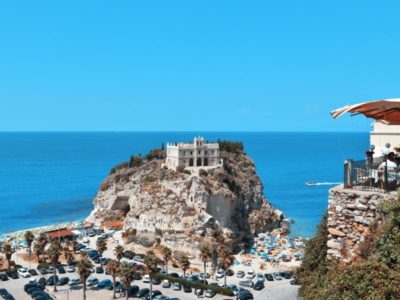

Tropea e Capo Vaticano: Capo Vaticano is defined as one of the 100 most beautiful beaches in the world. Miles of white beaches, the sea with unforgettable colours, and a historic centre full of noble palaces built on the rock overlooking the Caribbean sea, a breath-taking view with the famous church on the island and in the background the Stromboli volcano.
Pizzo
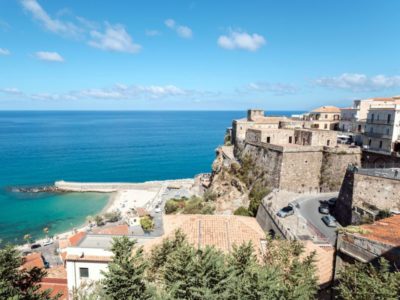

Pizzo: A picturesque village is a treasure trunk of fascinating places rich in history to be discovered, boasting a historic ice cream tradition and also known as the city of ice cream, hence one of Italy’s most famous desserts, the Tartufo di Pizzo. Aragonese Murat Castle, a fortress set in the historic centre of Pizzo with a panoramic view overlooking the sea. The fortress contains relics, ornaments, various objects, weapons, armours and uniforms relating to the period of the Napoleonic Empire.
Island of Capo Rizzuto
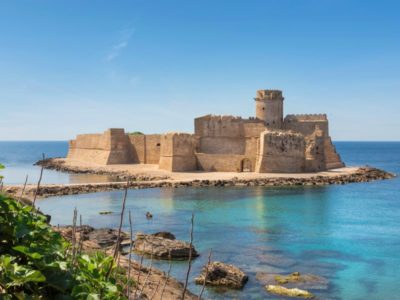

The island of Capo Rizzuto is not only a renowned seaside resort in Calabria, where it is possible to find clear seawater and wide sandy beaches, the territory is in fact rich in archaeological finds. An almost necessary stop is certainly the Aragonese Fortress, in the locality of Le Castella, which testifies to the ancient Aragonese domination suffered in the fifteenth century.
I Bronzi di Riace
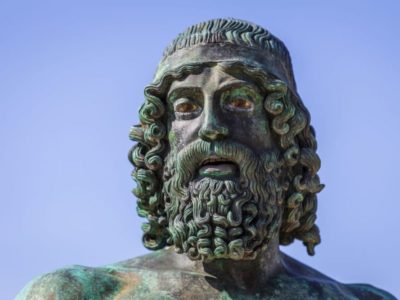

Reggio Calabria: the Riace Bronzes are two bronze statues made around the 5th century BC and found in Riace, in an exceptional state of preservation. They undoubtedly represent one of the highest moments of sculptural production of all time and the most important archaeological discovery of the last century. The Bronzes are kept in the National Museum of Reggio Calabria, and have become one of the symbols of the city itself.
Serre Regional Natural Park
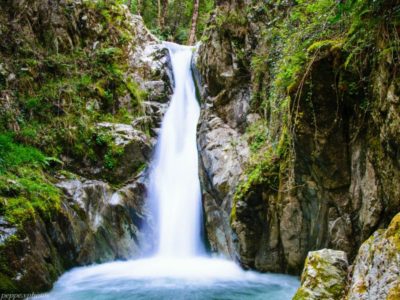

The Serre Regional Natural Park is a protected natural area. Situated between the Aspromonte and the Sila, it is crossed by two long mountain ranges, by large woods, and the richness of water, which flows from springs, forms brooks, creeks and typical rivers called fiumare, slipping into ravines and creating waterfalls.
Aspromonte National Park
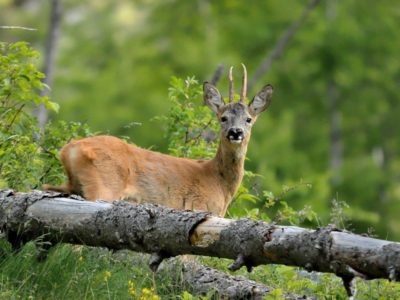

Aspromonte National Park: it is situated between the Ionian and Tyrrhenian Sea, to which it is very close; the Aspromonte Massif has several peaks that reach up to 2000 meters. From them the Etna and the Aeolian Islands are clearly visible. It is rich in magnificent and evocative landscapes, many monasteries and sanctuaries. The dense vegetation and the presence of a predominantly Mediterranean climate favour the presence of many animal species that find their ideal habitat in the Aspromonte.
Le Terme
Terme di Galatro
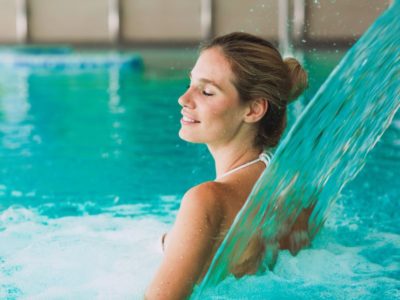

A little less than a kilometre from the old historic city centre you can find the well-known Galatro thermal baths, within which the precious sulphur-sodium-iodine-type waters flow from the S. Elia spring. Made famous by a particular sulphurous component and other precious minerals, they are good for rehabilitative and aesthetic paths of various kinds, not necessarily linked to the characterizing element.
Antonimina Thermal Baths


The healing potential of the thermal waters, known as “Antiche Acque Sante”, were known since ancient times, when they were used by the ancient city of Locri Epizephiri. The waters flow constantly at 36 degrees of temperature and are bacteriologically pure. The biological properties of these waters are those characteristics of chlorinated-sulphate-alkaline waters with traces of iodine, isotonic and slightly hypotonic.
Sport outdoor
Trekking
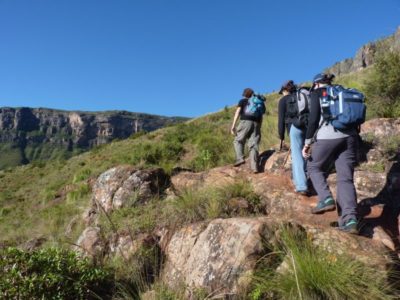

Numerous park trails that flank vast and diverse panoramas and allow you to cross areas where the sea and the mountains appear so close together that they seem all one thing. You can admire the various natural beauties, from the waterfalls to the narrow valleys, immense forests of centuries-old trees, from historical monuments to small villages and numerous rocky agglomerations.

